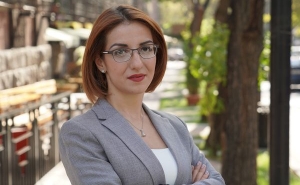
What Was Nikol Pashinyan Trying to Get with His Visit to Paris?
His statements and actions have nothing to do with the national interests of Armenia, they serve purely his personal goals, his ambitions to stay in power.

His statements and actions have nothing to do with the national interests of Armenia, they serve purely his personal goals, his ambitions to stay in power.
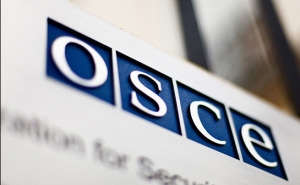
The statements of the OSCE Minsk Group Co-Chairs and the messages coming from the Co-Chair countries indicate activation of this format.
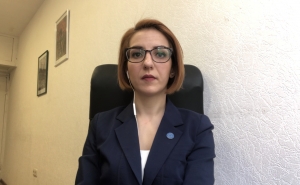
The question is how will the current Armenian authorities be able to take advantage of it...
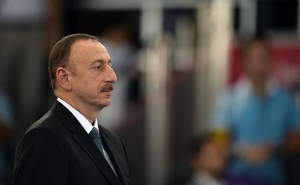
Aliyev's statements indicate that the Azerbaijani authorities not only continue to threaten with the use of force, but also deliberately incite hatred towards Armenians among their next generations.
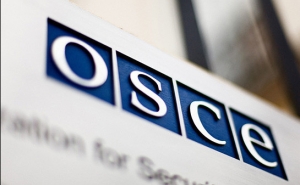
Despite some really important observations, there are a number of problematic points in the statement...
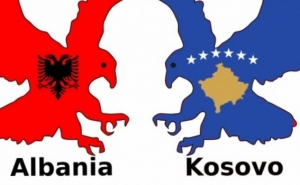
Kosovo threatens to unite with Albania if the EU continues the isolation policy of the latter. Kosovo’s President Hashim Thaçi made such a statement, referring to the "lingering process" for the EU visa regime liberalization for Kosovo.
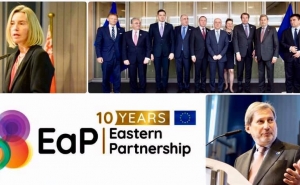
Today the EU problem is not having similar agreements with the Eastern partners and moving forward with common principles, but not losing partners in the region and finding ways to deepen cooperation with them.
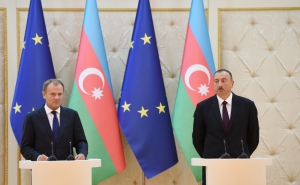
Azerbaijan does not succeed in enshrining the desired wording in its documents with the European Union.
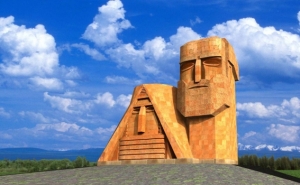
25 years ago we got “neither war nor peace”, a regularly escalating situation across the border, casualties, injuries both among soldiers and the peaceful population.
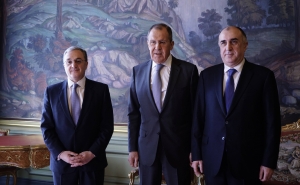
The sides have problems of understanding each other’s perceptions and commenting on the perception of the actual process.
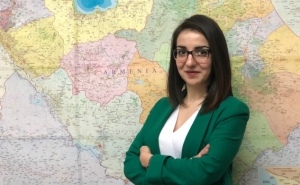
As a result of the meeting there are agreements reached at least in three aspects – imprisoned people’s relatives’ visits, mutual visits of mass media representatives and no firing during agricultural work.
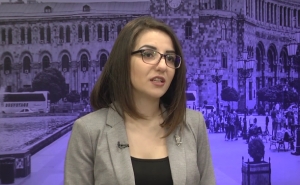
On April 11 prime minister Pashinyan made a statement at the PACE session and answered question of the MPs. Alongside the revolution in Armenia, democratic improvements, relationships with neighbor countries and others Pashinyan spoke about the Karabakh conflict settlement process.

Leaders of the countries remaining in the European Union have agreed to extend Brexit until October 31.
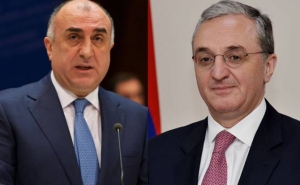
Following the revolution in Armenia this will be the first Russian mediated meeting aside from introducing Pashinyan and Aliyev to each other in Moscow.
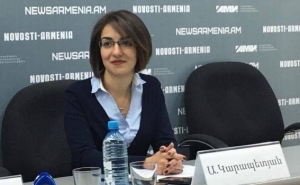
Germany became the 11th EU member state to ratify the Armenia-EU agreement. Sweden is expected to be the next in the near future.
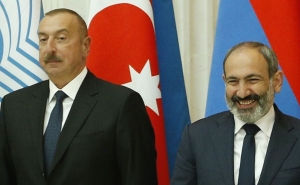
These days the 3rd year of the April war is commemorated. And now more than ever, it is pressing to talk about the mechanisms intended to prevent the possible resumption of hostilities and ceasefire violations.
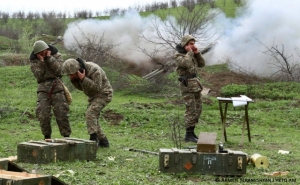
It has been three years since the April war, but the days with their horrible consequences have not faded away which makes it difficult to analyze the issue without emotions.
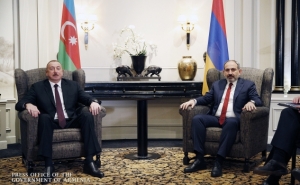
Positive assessment, lack of tangible results, can be a brief description of March 29 Vienna meeting between Nikol Pashinyan and Ilham Aliyev.
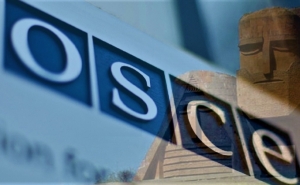
On March 9 the OSCE MG co-chairs issued a statement prior to Aliyev-Pashinyan upcoming meeting. Before we come to the content of the statement one thing should be pointed out.
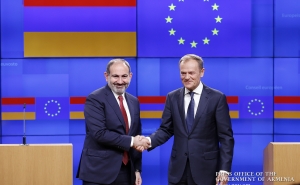
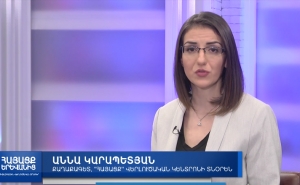
It turns out that the mediators come to learn the details of a January 22 meeting only a month later.
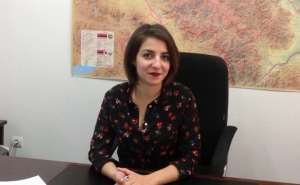
European Commissioner for European Neighborhood Policy and Enlargement Negotiations Johannes Hahn visited Armenia in the beginning of the week.
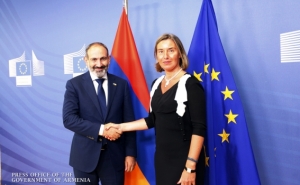
In 2018 the relations between Armenia and the European Union entered into an important phase: in November 2017, the Comprehensive and Enhanced Partnership Agreement was signed between Armenia and EU.
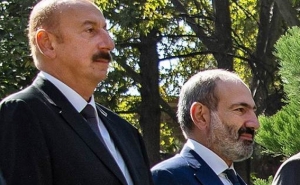
In total, during this year, the negotiation process can be divided into two stages: before the revolution in Armenia and after the revolution.
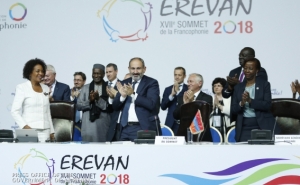
2018 was a unique year for Armenia in terms of domestic political developments that directly and indirectly had its influence both on the foreign policy of the country and on the intensification of relations with different countries.
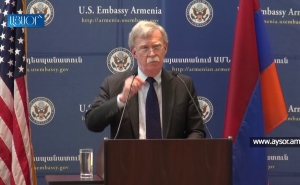
Let's note that this was quite a unique visit. The last time the US President's Security Advisor visited Armenia in 1997 and was the first time in Azerbaijan.
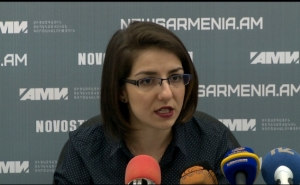
The decision to postpone the venue of the session, of course, does not mean deterioration of Armenia’s relations with other CSTO member states. However, it can be said that what has happened is a consequence and a continuation of not very smooth developments in relations between Armenia and the CSTO in recent times.
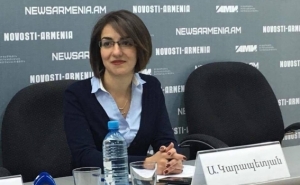
The essence of the Artsakh issue is the struggle for the realization of the Artsakh people's right to self-determination. Therefore, peace will be possible only when Azerbaijan recognizes that right.
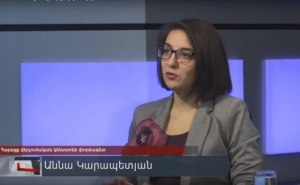
Based on the results of approximately three-hour talks, first in an expanded format, then in a tete-a-tete format, it is noted only that there was an exchange of views on the settlement of the Karabakh conflict and the need to establish a stable peace in the region, and also the parties expressed readiness to continue the dialogue.
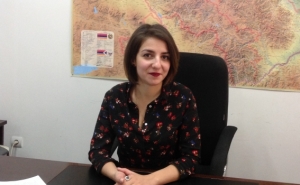
The fight against corruption and the disclosure of crimes, the implementation of fair trial and the preservation of the law are the main goals of any democratic country and the natural demand of the Armenian public.
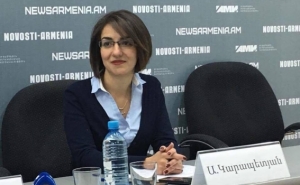
Nikol Pashinyan's reference is also about the threat of war resumption. He noted that there is always danger of war and the Armenian people should always be ready for it.
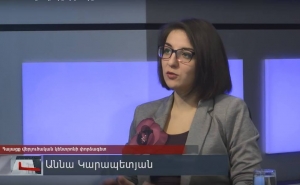
It is quite natural that the rapid pace and success of democratic processes in Armenia are awarded a positive assessment from the EU, and this assessment must be materialized. Let's try to clarify what practical steps can be expected from the EU at this stage.
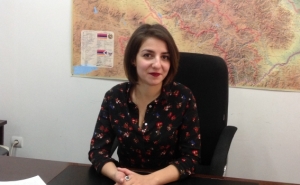
It is more than obvious what goals Azerbaijan pursued by organizing this action: to legitimize the return of territories by military means, while using the representatives of the country co-chairing the OSCE Minsk Group and Armenia's strategic ally, to show how well Azerbaijan "takes care" of these territories and use all this in information war against Armenia and Artsakh.
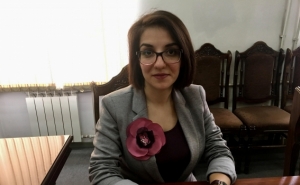
Azerbaijani side acknowledged that they are ready to begin military operations at the first convenient moment. And this, in fact, is a refusal of a political settlement through negotiations.
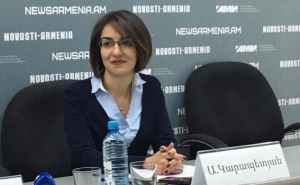
Despite the statements of the new authorities on the continuity of Armenia's policy on the Karabakh issue, there are some new accents. And in this case, the co-chairs would like to understand how much these new accents fit into the existing logic of the negotiations and what developments they can lead to.
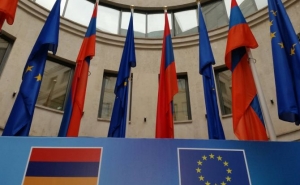
It is noteworthy that even partial, but quick implementation of the agreement will give an additional impetus to the reforms being implemented in Armenia with the EU support, as well as will deepen Armenia-EU cooperation in a number of spheres. As a result, the agreement will have a direct impact on the lives of Armenian citizens.
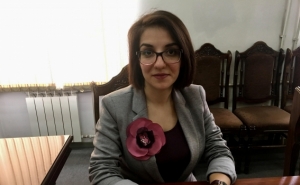
Reactions to Nikol Pashinyan's election as prime minister also testified the consistent work that had been carried out with both Russia and the West.
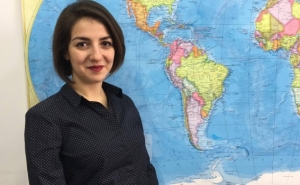
If we refer to the meaning of ratification of the agreement on behalf of Armenia, then two components can be distinguished: political and practical.
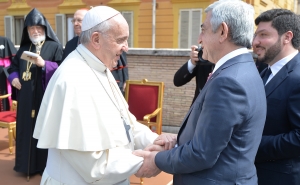
Armenia, the Armenian people and the Armenian Apostolic Church had and have an important role in the Christian world. Armenia is the boundary of Christianity and the European civilization based on Christian values, it is one of the sources of Christian culture and values.
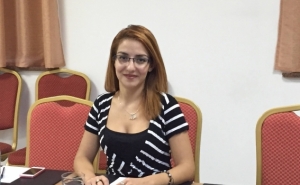
This statement of Artsakh President, according to which Azerbaijani refugees can return any time, in case they recognize the Republic of Artsakh and its jurisdiction, is very important and symbolic. It has not only political, but also humanitarian importance.
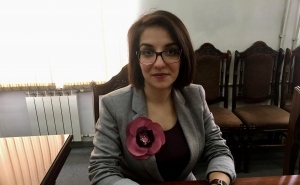
It is important to note that if initially the EU was guided by a single mechanism for building cooperation with all six EaP countries, then soon they realized that this is inefficient.
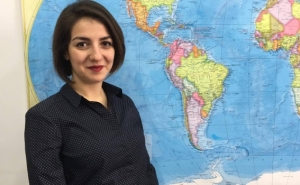
In April elections, the opposition of Azerbaijan will participate almost spontaneously, and observers will not have legal grounds for proving even the most obvious restrictions.
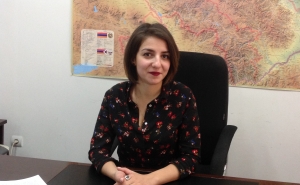
Moreover, in an answer to the RA President's calls to abandon the ambitious demands, Baku declared that "the Armenian and Azerbaijani communities of Nagorno-Karabakh can enjoy self-determination within Azerbaijan." It also reaffirmed its demands for withdrawing Armenian troops from Artsakh as the first step. This is nothing more than an ambitious demand and destructiveness.
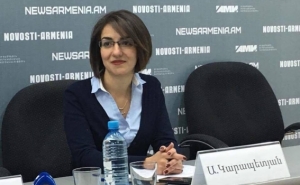
the Ministers have in general agreed on the extension of the Office of the Personal Representative of the OSCE Chairman-in-Office presented by the Co-Chairs. And this means that the mediators endeavor to achieve tangible results in at least one of the agreements reached in Vienna and St. Petersburg
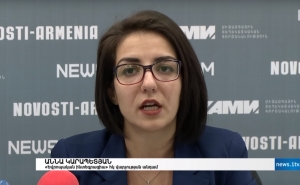
In order for the agreement to enter into force and all sides to fulfill their obligations, the agreement must be ratified both by the parliaments of 28 EU member states and the European Parliament.
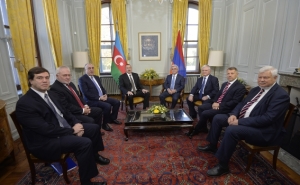
Summing up, we can state that 2017, in general, passed in a rather tense atmosphere, which was on one hand conditioned by Azerbaijani stance to violate the agreements aimed at strengthening ceasefire regime, on the other hand by the regular increase of tension on the border at the beginning of the year.
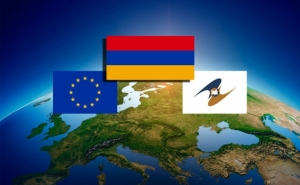
This year, by signing the Comprehensive and Enhanced Partnership Agreement with the EU, Armenia has finally implemented its "both and" policy.
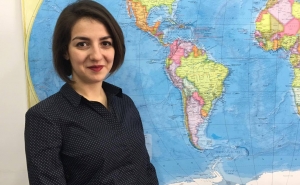
Not only Armenia but also EAEU partner countries will do their best to take maximum advantage of this opportunity.
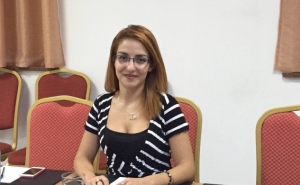
Besides, this can become a precedent for the future cooperation of Kiev and Moscow as the attempt is made to separate a number political disagreements from humanitarian issues. This can later be also used for other conflicts.

Summarizing, it can be mentioned that in some terms very general and compromising formulations were chosen in the Brussels Declaration. As for Armenia, in general, the document reflects a positive assessment of the great work done, overcoming the many uncertainties and the desire of both the EU and Armenia to move forward.
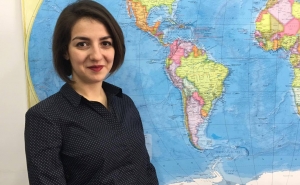
Thus, the cooperation with Moldova can have its contribution to strengthening the position and role of Armenia in the EAEU. In parallel, it will build bridges between the European and Eurasian unions.
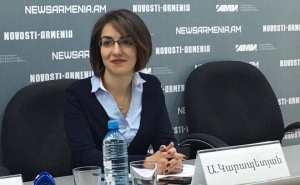
After the talks, Sargsyan responded to Aliyev, stressing that the only solution for us is that Karabakh be outside Azerbaijan and no Armenian leader will ever adopt another decision. In this way Sargsyan made it clear that Armenia's constructiveness and restraint behavior in the negotiation process should not be misinterpreted by Aliyev clan.
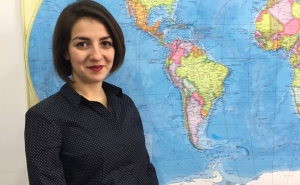
From the very start of this process it was predictable that the final aim of Catalonia is not that much independence, but getting higher degree of autonomy. In this regard the passions were more aggravated by the tough reaction of the official Madrid on holding a referendum and the use of violence.
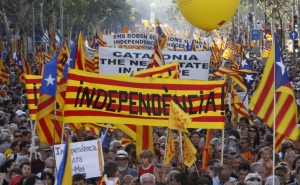
The struggle for independence of Catalonia contains several important components.
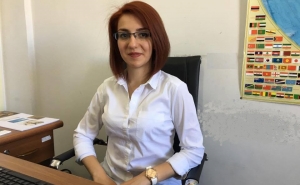
In his speech, the President stated that the Karabakh issue is, first and foremost, a human rights issue and should be solved on the basis of respect for the fundamental human rights, that is, the realization of the right to self-determination and the security of the Artsakh people, as all other problems are derivative and secondary.
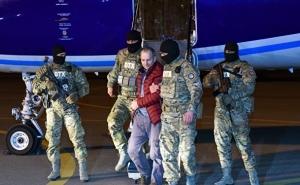
At the same time, taking into consideration the complicated relations between Turkey and the EU and the slightest possibility of getting support from Ankara, in the current situation, Baku has to "make concessions" not to create new problems for itself and not to exacerbate international pressure.
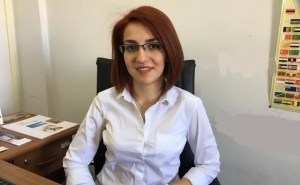
We can state that currently the mediators take steps to restart the negotiation process and its basis, while the US, in its turn makes active efforts.
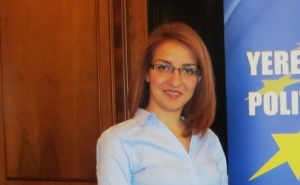
The manipulation of the issue of the Armenian Genocide, as a tool of political pressure or black-mail against Turkey is unacceptable, especially by Israel.
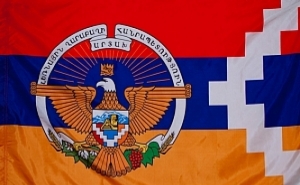
The people of Artsakh organizes its life according to the threats and needs, that it faces, at the same time being condemned to the democratic values. This is the most important factor, on one side for the people of Artsakh, on the other side for preventing and steps back in conflict settlement process.
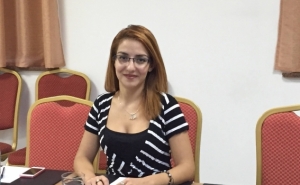
In this context, it would be logical, that in response to the attampts of Azerbaijan to avoid Vienna and St.Petersburg agreements, the Co-Chairs of the OSCE MG raised an issue of widening the contacts with Artsakh, for example, by establishing the Co-Chairs’ office in Stepanakert.
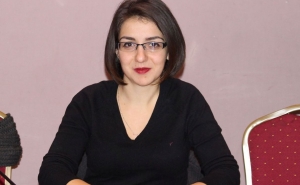
This process is important not only in the context of PACE. Logically, this must be a signal for European MPs in different international organisations, who will avoid deals with Azerbaijan not to put their reputation under risk.
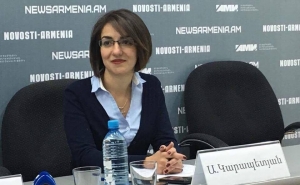
Another issue is that the statement does not mention the loss of life recorded during their visit, and most importantly, the wording of the criticism is mild, with no clear-cut measures.
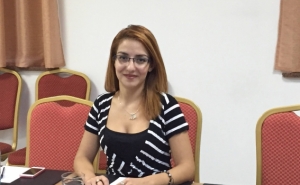
And now the government of Turkey announces, that it can easily give up its plans for becoming an EU member state. The prosecutions in that country, pressure on journalists, expansion of Erdogan's powers and strengthening of Islamic values show that Turkey is really going away from the European values, at the same time issuing ultimatums to Brussels.
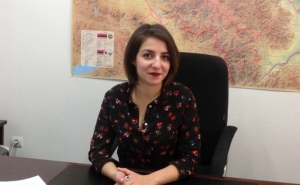
It is quite interesting that the labor party has considerably improved its position – a party, which did not use the motto "not to Brexit", but they are more prone to soft Brexit.
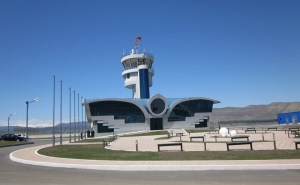
Meanwhile, the Azerbaijani side represents this as a violation of Azerbaijan's airspace, continuing the scandal raised around using the airport in Stepanakert.
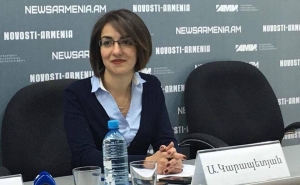
Peace cannot be presented as a concession to Artsakh and Armenia, as it is equally important for all countries of the region and first of all for all people.
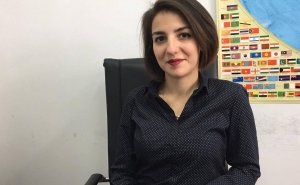
The most appropriate thing to do in this situation will be to sign a new trilateral agreement of non-use of force and threat of force on the basis of 1994 Agreement.
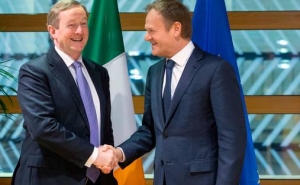
In fact, today Northern Ireland does not have a clear desire to leave the United Kingdom and unite with the Republic of Ireland, but rather wants to get guarantees that in case of such a desire it can immediately be included in the European Union, bypassing the long pre-membership process.
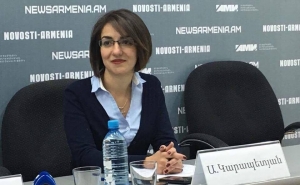
Another question is whether by succeeding in a formal way, Azerbaijan will de-facto succeed. Today the OSCE leadership, the Presidency discuss issues of maintaining all aspects of cooperation on security in the South Caucasus and on finding alternative ways of engagement.
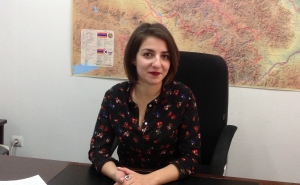
The British people has already answered this question during last elections and referendum, and today May has the necessary number of supporters in the parliament to put forward the process of Brexit. In this context the decision of May seems quite strange.
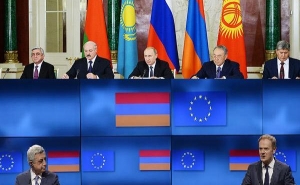
It can be noted that two of the four political forces represented in the parliament clearly emphasize the importance of developing cooperation with both the Eurasian Union and the European Union. One of the other two forces also supports the "and-and" policy, since at the moment it is the best one in terms of the interests of Armenia.
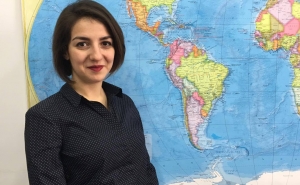
Moldova is the first country, that has already signed the Association Agreement and DCFTA and at the same time wishes to cooperate with the EAEU. In fact, Chisinau followed the example of Armenia – the policy of "and-and".
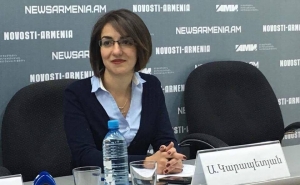
By pre-signing and later by signing the Agreement, Armenia fixed its commitment to the European values, to its will for carrying out reforms in the country.
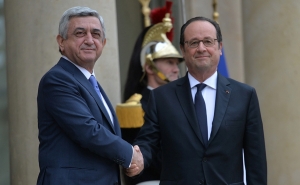
On the other hand, the President of Armenia, in turn, confirmed Armenia's readiness to contribute to the cooperation between the EAEU and the EU.
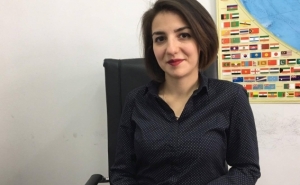
EU leaders, including Donald Tusk, stressed in their statements that Armenia is an important partner for the EU, and they are ready to promote the deepening of the reform.
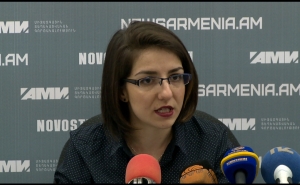
According to the expert, the main message of the Armenian President's visit to Brussels was the effective application of the "and-and" policy. "European leaders' statements suggest that the EU gives great importance to the cooperation with Armenia and intends to develop effective relations with Armenia."
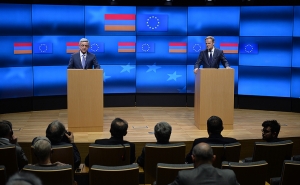
In particular, reference was made to Azerbaijan's recent statements on the status quo and it was specified that there is only one way to change the status quo, it is the recognition of self-determination of Artsakh people.
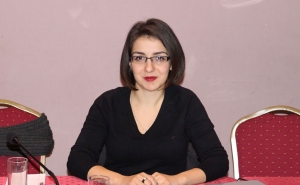
It’s not excluded, that if this policy of Azerbaijan continues, one day Baku can decide “to punish” also Armenia and demand to arrest and send to Baku all Armenians, who have visited NKR. What will then happen?
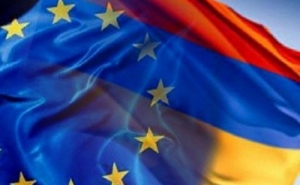
Constitutional reforms, as well as the new Electoral Code agreed and adopted with the dialogue of the opposition and the civil society is a "step forward" in the democratization process.
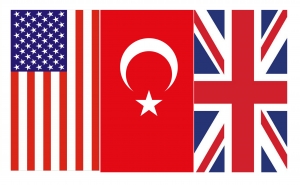
Thus it turns out that now all those countries are getting united that have strained relations with Brussels, and at the same time, those countries that play an important role for the EU in economic and political spheres and in security matters.
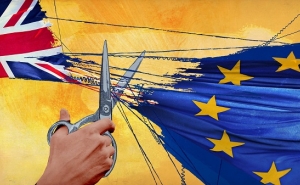
Given the EU's position on the Scottish independence referendum, it can be assumed that the Brussels will avoid to directly supporting Edinburg. However, it is not excluded that Scotland will play its role in "punishing" Britain.
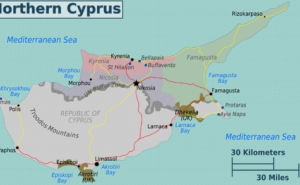
At the same time on certain issues Turkey is not ready to compromise and insists on the need of its military presence (even with small number) on the island, which makes difficulties in reaching an agreement. This, most probably, at the current stage of the negotiations is the most difficult issue, over which Greece is not ready to compromise.
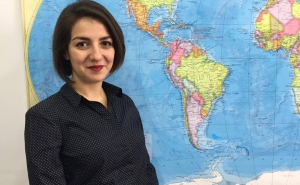
The main drawbacks of the statement are perhaps again the non-addressed calls, the principle of equalization of the Co-Chairs.
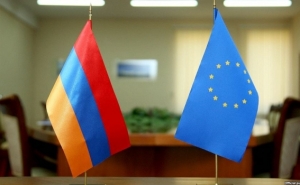
In parallel to the political component, the negotiations on the economic component of the new framework agreement are also going on.
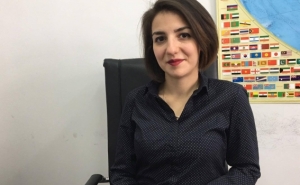
The so called "Lavrov plan" was also widely discussed, which allegedly assumes concession of 5 regions to Azerbaijan, instead having open communication; a plan, which allegedly does not have any clear implication on Karabakh’s status.
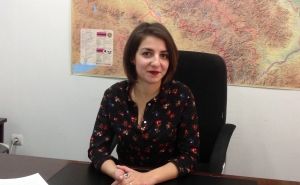
In parallel, in the framework of this year’s Ministerial summit the OSCE Secretary General, Lamberto Zanier declared that the OSCE works in developing investigative mechanisms of the incidents on Karabakh conflict zone.
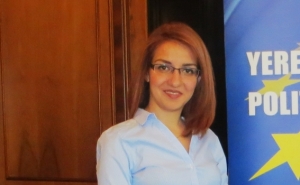
Armenia has always declared that it does not accept the principle that the two integration vectors contradict each other and it will seek to move with "and…and" principle.
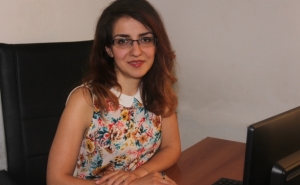
Regardless of the fact that the new president considers himself a pro-Russian politician, and was in favor of the normalization of Russian-Moldovan relations, it is unlikely that Moldova refuses the European integration vector.
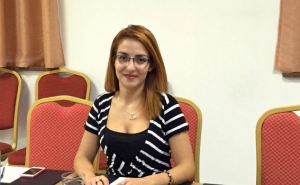
It is absolutely meaningless to comment the other words of the president of Azerbaijan, who says Armenia is to be blamed for the prolongation of conflict settlement. It is obvious, who is destructive and who is perceived or not perceived by the international community and the mediators.
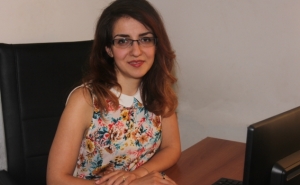
The negotiation process had moved in such a way that Aliyev now has to raise the issue of the recognition of the independence of NKR among Azerbaijani society and at the same time in this way he tries to awake discontent of the society and use it to show that the recognition is "impossible".
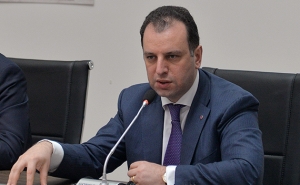
Vigen Sargsyan will preserve and will develop current foreign political vector of the RA Defense Ministry. At the same time the reforms in the army and in the Ministry will even contribute to the raised effectiveness of the system, which, in its turn, among other will also positively affect our relations with our partners.
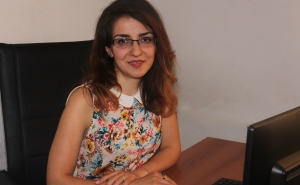
If the sides are able to overcome internal crisis and at the same time build healthy cooperation, this "divorce" can even create new opportunities for them.
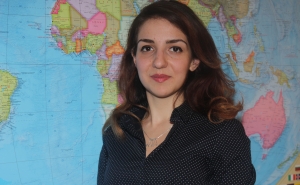
This format also has serious shortcomings, and the main one is the absence of NKR. Without NKR no real progress can be reached and that’s why the Co-Chairs of the OSCE MG always visit NKR and discuss the process with the government of Artsakh.
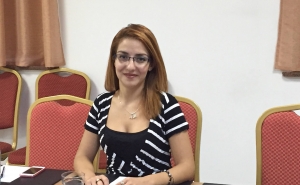
At the same time, the recognition of this resolution can also bring forth some threats. It is not excluded that by the instigation of Turkey or by its own initiative Azerbaijan will try to resort to new provocations on the border with Armenia and NKR.

It is enough to remember that Turkey, under the pretext of fighting against terrorism, is warring against the Kurds that are its citizens, is massacring the peaceful Kurdish population and supports the terrorist activities of the Islamic State.
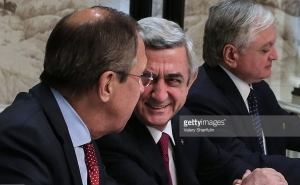
If the investigation mechanisms of the OSCE do not work and there are no guarantees of peace, it will be illogical to expect concessions and progress in the political settlement.
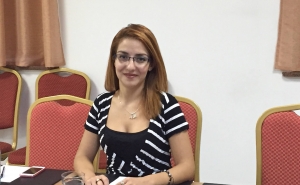
The next step in this direction should be to return NKR to the negotiation table.
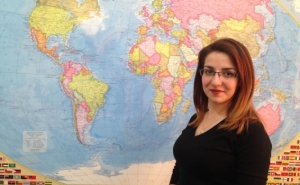
In this way official Baku as if is trying to fix the situation after April war and nullify the agreements and negotiations that were before that, including their legal basis.
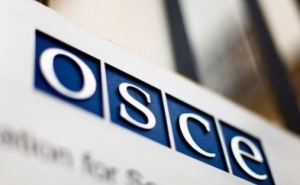
The format of three Co-Chairs, which presents the three centers of power, was not chosen by chance. Thus, an attempt was made to ensure a balance of forces and to establish a mechanism of checks and balances.
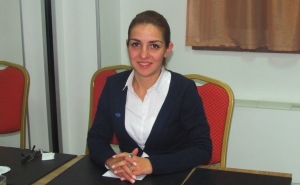
Second, the escalation of the conflict in the South Caucasus will inevitably lead to the strengthening of Russian influence in the region. And this, of course, is not in the EU's interests.
 17:08
17:08 15:05
15:05 11:11
11:11 10:43
10:43 09:16
09:16 19:55
19:55 18:30
18:30 18:20
18:20 17:01
17:01 16:45
16:45 16:01
16:01 15:59
15:59 15:43
15:43 15:06
15:06 14:47
14:47 14:44
14:44 14:20
14:20 12:57
12:57 11:40
11:40 10:16
10:16day
week
month